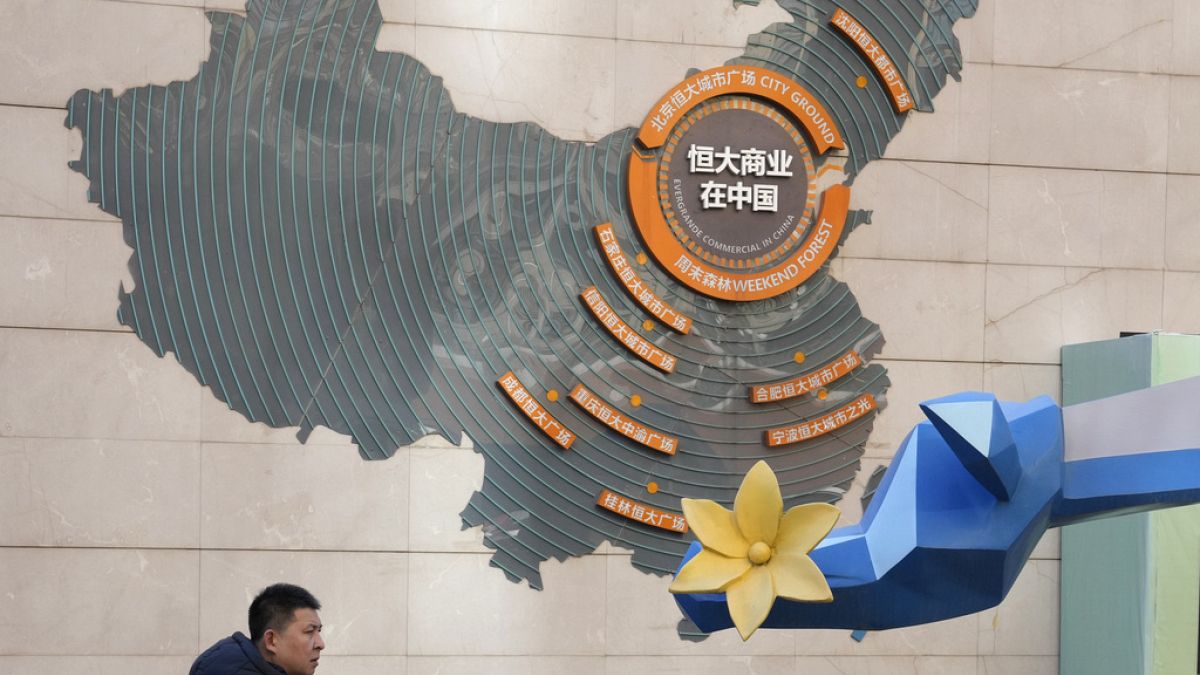A number of European companies have been facing tremors as the Chinese property sector teeters on the brink of collapse.
China’s property sector has been facing a series of shocks in the past few years, compounded by the pandemic, as well as slower economic growth and weaker demand.
Its foundering was primarily started by the near collapse of real estate giant Evergrande, back in 2021.
Following that, other major Chinese property developers such as Country Garden, Fantasia Holdings, Sunac and Kaisa Group have slumped too.
Country Garden has plunged almost 82% since the start of the year, with Sunac dropping about 65% in the same time as well.
Evergrande, Fantasia Group and Sunac, amongst others, also had to stop trading for several months, while they scrambled to stabilise themselves.
In October 2023, China’s newly-built house price index fell 0.1% year-on-year for the fourth consecutive month. Guangzhou, Shenzhen and to a certain extent, Beijing, were the main drivers of the figure.
China has already announced a range of stimulus measures to help support the property sector, such as low-cost financing worth around €126 billion for the development and renovation of urban villages.
The country has also announced measures to advance affordable housing as well as relieve financial burdens on consumers. They include lower mortgage rates and tax slashes for families with children and senior citizens.
However, ultimately, the initiatives may still not be enough, with increasing calls for more stimulus measures that last longer and address more areas in the sector.
Half a world away, European firms are under pressure
With a number of European companies exposed to China’s property sector, Europe has been facing the tremors as well, with investors keenly watching the situation develop in China.
Ashmore Group, a UK investment manager specialising in emerging markets, is one of the worst affected European companies, holding upwards of $500 million (€460 million) of Evergrande bonds. The group has seen its performance tank 37% since early February this year, trading at €2.06 at the time of writing.
The majority of European companies investing in China do so mostly through exchange-traded funds, investing in a variety of Chinese industries. A number of these funds are Luxembourg-based and invest heavily in the Chinese property and financial sectors.
The Schroder All China Equity fund has also dropped more than 28% since late January this year. It currently invests 1.04% in Chinese real estate, but has 5.33% in materials, 10.47% in financials and 12.88% in industrials.
Investment firm Abrdn puts money into China through its closed-end China Investment Company, which slid about 32% since mid-January this year.
The firm invests 9.3% in tech conglomerate Tencent, with distilleries company Kweichou Moutai, e-commerce giant Alibaba and China Merchants Bank also accounting for a significant amount of the portfolio.
Swiss lender UBS’s MSCI China Fund has also sunk almost 20% since late January 2023. Barclays is another big European player in China, with its own RMB-denominated fund, as well as ambitious plans to enter the local asset management sector.
Very often, Chinese giants such as Tencent and Alibaba take up large shares in these funds’ portfolios, which also opens them up to secondhand risk from the real estate sector.
This is due to Tencent investing heavily in real estate companies such as Dalian Wanda Group. Alibaba has also previously made missteps in the real estate sector, including its ill-fated Tmall Haofang real estate trading platform venture, which it was forced to sell.
Carmarkers BMW, Daimler and Volkswagen are some of the most prominent European companies pouring funds into China. Their relationship with the Chinese real estate sector is much more complex, as these companies need to set up a variety of different locations.
These include corporate offices, which may be spread out across major Tier 1 cities such as Beijing and Shanghai, as well as regional hubs such as Chongqing and Wuhan. They also need to set up factories, manufacturing and assembly bases in areas away from cities, where real estate is hopefully cheaper.
On the other hand, high-tech and sophisticated operations such as research and development also need to be based in big cities, where more facilities and better talent is available.
Similarly, chemicals giants such as BASF have also invested heavily in China real estate, revealing a new €10 billion mega complex in 2022, based in Zhangjiang.
These companies rely on the local Chinese real estate sector not only for the initial site selection, but also, in many cases, later consolidation of several hubs or buildings into more extensive complexes. This is usually done once a company achieves a certain level of growth and revenues in the host country.
It's not just Europe
The impact of China’s property sector does not stop only at European companies either, with several US companies also feeling the heat. Amongst these are JPMorgan Chase, BlackRock, Nike and Apple and Tesla.
Companies such as Apple, Nike and Tesla have massive factories based in China, which are heavily reliant on real estate perks such as cheap land and tax breaks. Currently, the world’s largest iPhone factory is in China, with Tesla also basing its Gigafactory there.
According to the International Monetary Fund (IMF), the Chinese economy “is expected to slow in 2024 to 4.6% amid continuing weakness in the property market and subdued external demand”.
The IMF further highlights that although there have been a slew of recent property stimulus measures in China, more would have to keep coming to further bolster the sector.
This includes simplifying exit procedures for developers of non-profitable ventures, as well as streamlining housing price adjustments. More financial support for completing projects would also be required, as well as helping companies transition and adjust to a less active property market.



